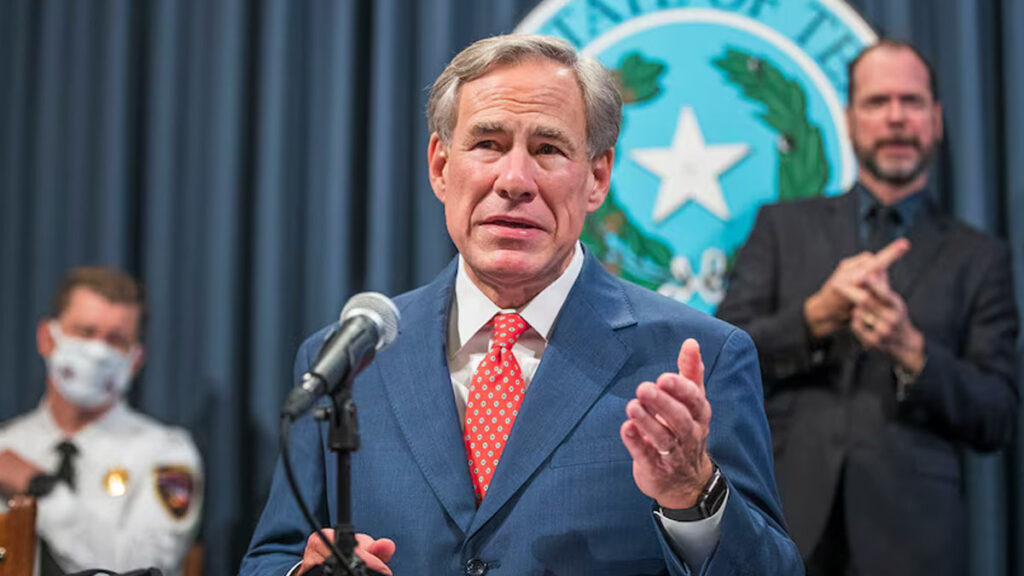Texas Governor Greg Abbott has issued a sweeping directive for all state agencies to divest their investments from China, marking a significant escalation in efforts to counter perceived threats from the Chinese Communist Party (CCP). This move is part of a broader strategy aimed at protecting Texas’ financial and strategic interests, but it comes with potential economic and logistical hurdles.
The Details of the Divestment Order
In a letter dated November 21, 2024, Gov. Abbott instructed state investment entities to cease any new investments in China and to divest existing holdings “at the first available opportunity.” The directive applies to a range of state agencies, including the Teacher Retirement System of Texas (TRS), which manages $210.5 billion in assets, and the University of Texas/Texas A&M Investment Management Company (UTIMCO), responsible for nearly $80 billion in funds. According to reports, TRS alone has approximately $1.4 billion in exposure to Chinese yuan and Hong Kong dollar assets, with Tencent Holdings ranking as its 10th largest position at $385 million.
Abbott justified the order by citing “belligerent actions” by the CCP in the Southeastern Pacific and beyond, asserting that these actions heighten financial risks for Texas. “The safety of Texas and Texans is paramount,” Abbott wrote. “Texas will defend and safeguard itself and our public treasury from any potential threats, including those posed by the CCP.”

Why Now? The Timing of the Order
The divestment order follows a series of executive measures targeting China, including efforts to crack down on alleged espionage against Texas’ infrastructure and institutions of higher education. Abbott has long voiced concerns about China’s expanding influence, particularly in Latin America. “China is really coming in and changing the attitudes now of Central and South American countries,” Abbott noted, warning of the adversary’s growing proximity to Texas.
The timing also aligns with geopolitical tensions, as Abbott’s letter described an anticipated continuation of Chinese aggression against the United States and its allies. Experts believe that Abbott’s actions may be influenced by the upcoming inauguration of President-elect Donald Trump, whose previous administration grappled with similar divestment challenges.
The Financial Stakes
China is Texas’ third-largest destination for foreign direct investment, trailing only Mexico and Canada. These ties are deepened by joint ventures between Chinese and Mexican companies that capitalize on the US-Mexico-Canada Agreement (USMCA). Steven Lewis, a senior fellow at Rice University’s Baker Institute, highlighted the complexities of disentangling investments. “It’s not like China has been on a banned list like Iran or Libya,” Lewis said. “Identifying what is a Chinese company or investment, given the prevalence of joint partnerships, is extremely difficult.”
The economic risks extend beyond state investments. Texas companies with significant operations in China, such as Tesla and Texas Instruments, could face collateral damage. Additionally, retaliatory actions by China could target Texas exports, including agricultural products and goods shipped through the Port of Houston. “The Port of Houston would be an obvious thing for China to go at,” Lewis remarked, noting the port’s role in facilitating Midwest exports to China via the Panama Canal.
Challenges Ahead
Implementing Abbott’s directive may prove arduous. Past attempts to divest from China at the federal level encountered bureaucratic roadblocks. Lewis underscored the lack of expertise in distinguishing between Chinese and non-Chinese entities, a task complicated by the global nature of modern supply chains.
Critics also warn of unintended consequences for Texas-based businesses. The state’s history of activist investment policies, such as restricting funds from Wall Street firms embracing environmental, social, and governance (ESG) principles, suggests that navigating the divestment process could take years and invite financial losses.
A Broader Message
Despite these challenges, Abbott’s order sends a strong message about Texas’ stance on national security and economic independence. “We can’t have Beijing earning capital in the U.S. market,” said China expert Jonathan D.T. Ward. By targeting state funds, Abbott aims to cut financial ties that could empower China’s global ambitions.
The move reflects Abbott’s broader vision to protect Texas from foreign threats. As he emphasized in an op-ed, Texas serves as the “gateway of our nation and Latin American countries,” a strategic position that requires vigilance against adversarial influence.
As Texas embarks on this ambitious divestment effort, the state faces a pivotal test of its ability to balance financial prudence with geopolitical strategy. Gov. Abbott’s bold directive underscores his commitment to safeguarding Texas, even as the economic and political implications continue to unfold.
